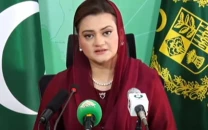The power of film
Women, all around the world, have long been exposed to the discriminatory practices at the workplace.

The promotion of such productions and documentaries — on local and international levels — can be an effective source of disseminating information, about the issues being faced by women in a society, or anyone, for that matter.
Women, all around the world, have long been exposed to the discriminatory practices at the workplace, they face hurdles that slow down their pace of progress and movement up the corporate ladder, the recruitment of females on top authority positions in organisations is low and the difficulties women face in attaining eminent positions in political parties are all issues that need individual attention.
Issue-based documentaries can raise awareness amongst the people. Females can relate to the content at display and males can understand how the discriminatory practices upset the former. Individuals at the top, the ones holding powerful positions, can also use this medium to understand and develop appropriate policies and regulations.
Jackson’s documentary has not only created awareness, but it also encouraged support groups to provide aid to these women. Congo, as an underdeveloped country, is in need of medical facilities and proper regulation of healthcare for women. The distribution of such content can trigger chains of positive events that can help those suffering, with moral, social and monetary support from a number of external sources.
Sometimes, simple words of encouragement are also enough to help one recover from any trauma experienced.
Published in The Express Tribune, August 13th, 2013.



















COMMENTS
Comments are moderated and generally will be posted if they are on-topic and not abusive.
For more information, please see our Comments FAQ